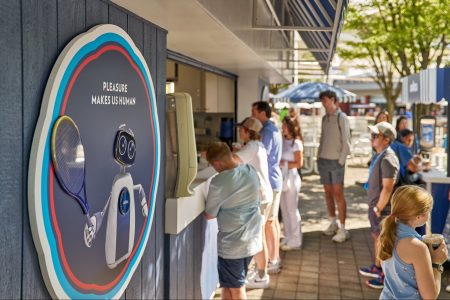These days, customers aren’t just looking for a great product or service. They want an experience that’s smooth, hassle-free and feels like it was designed just for them. If you’re not delivering that, your competitors are ready and waiting to steal them away.
Salesforce’s “State of the Connected Customer” report makes it clear: 80% of customers say the experience a company offers is just as important as its products or services. So, if you’re not focused on making the buying process easy, you’re missing the boat.
This means you can’t just solve a problem and call it a day. You’ve got to walk with your customers through every step of the process — and sometimes even after the sale. Why? Because a lot of them will keep researching after they’ve already bought, trying to make sure they didn’t screw up. Your job is to prove to them, again and again, that they made the right choice. There’s no such thing as “finished” anymore.
Is it a lot to handle? Sure. But we all live in a world where information overload is the norm. When we’re buying, we sift through the noise to find what we want. When we’re selling, we need to clear that noise for our customers. If they feel confused or frustrated, they’re out the door. But if you can build trust and make the experience simple, they’ll stick around.
So, how do you create that kind of experience? Let’s break it down:
Related: 4 Things That Make for Unforgettable Customer Experiences
1. Make research easy and personal
Customers these days come prepared. They’ve already done a ton of homework before they even think about talking to you. They don’t want long email chains or endless meetings. They want answers, and they want them fast.
That means your website and any other materials need to be clear, helpful and relevant. If you’re pushing the wrong details, you’re wasting their time, and they’ll walk.
I saw this firsthand when I was shopping for a car. The salesperson kept going on and on about the car’s engine specs and speed. But I’m a nerd, not a gearhead. I only cared about the tech gadgets. I kept trying to see the touch screen inside, but the seller stuck to his script and insisted on showing me the tires. I walked. In contrast, I contacted another dealership with my questions. They responded in a couple of hours with answers and a custom demo video. Boom — I had a new car.
People want personalized experiences. The Salesforce “State of the Customer” report found that two-thirds of customers expect companies to adapt to their shifting needs. So, don’t throw everything at them at once. Figure out what matters to this customer and focus on that.
2. Be the go-to expert customers can’t live without
When you give customers a killer experience, you’re not just solving one problem; you’re setting yourself up as their go-to for future problems. And that’s where the magic happens.
Adobe found that 71% of customers stick with brands they trust. When you consistently deliver value and a great experience, they won’t just come back — they’ll keep coming back. You might have to put your own interests aside in the short term, but the long-term payback is worth it.
Related: 3 Ways to Turn Your Customer Leads into Your Biggest Fans
3. Keep improving the customer experience
Customer needs change fast, and if your customer journey stays the same forever, you’ll get left behind. But don’t worry, this doesn’t mean tearing everything down and starting over. Sometimes, all it takes is a tweak here and there.
Remember, buyers usually fall into two camps: risk minimizers and gain maximizers. Figure out which one you’re dealing with and adjust accordingly. In B2B sales, your main contact often has to sell your solution to a room full of decision-makers you’ve never met. That means your materials need to be strong enough to do the selling for you when you’re not in the room.
Want to know when it’s time to tweak the journey? Ask your customers. Their feedback will tell you exactly where the gaps are and help you make changes that drive better results.
Related: Customers Are Changing – Is Your Business Ready?
Yes, customer behavior is constantly evolving, but that doesn’t mean you can’t keep their loyalty. By making the buying process personal, seamless and built around their needs, you’ll keep them coming back — and you’ll set your business up for long-term success.
Read the full article here










